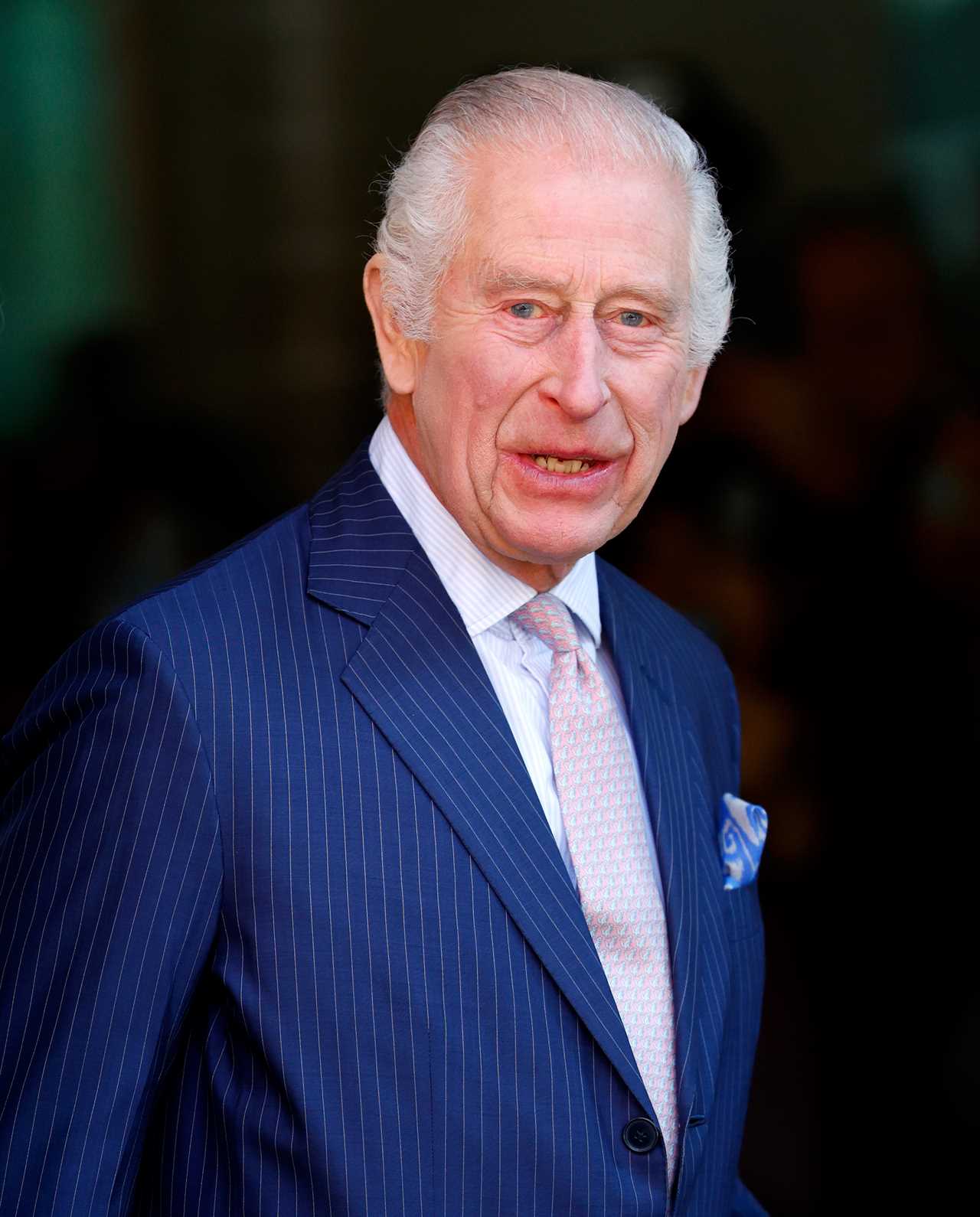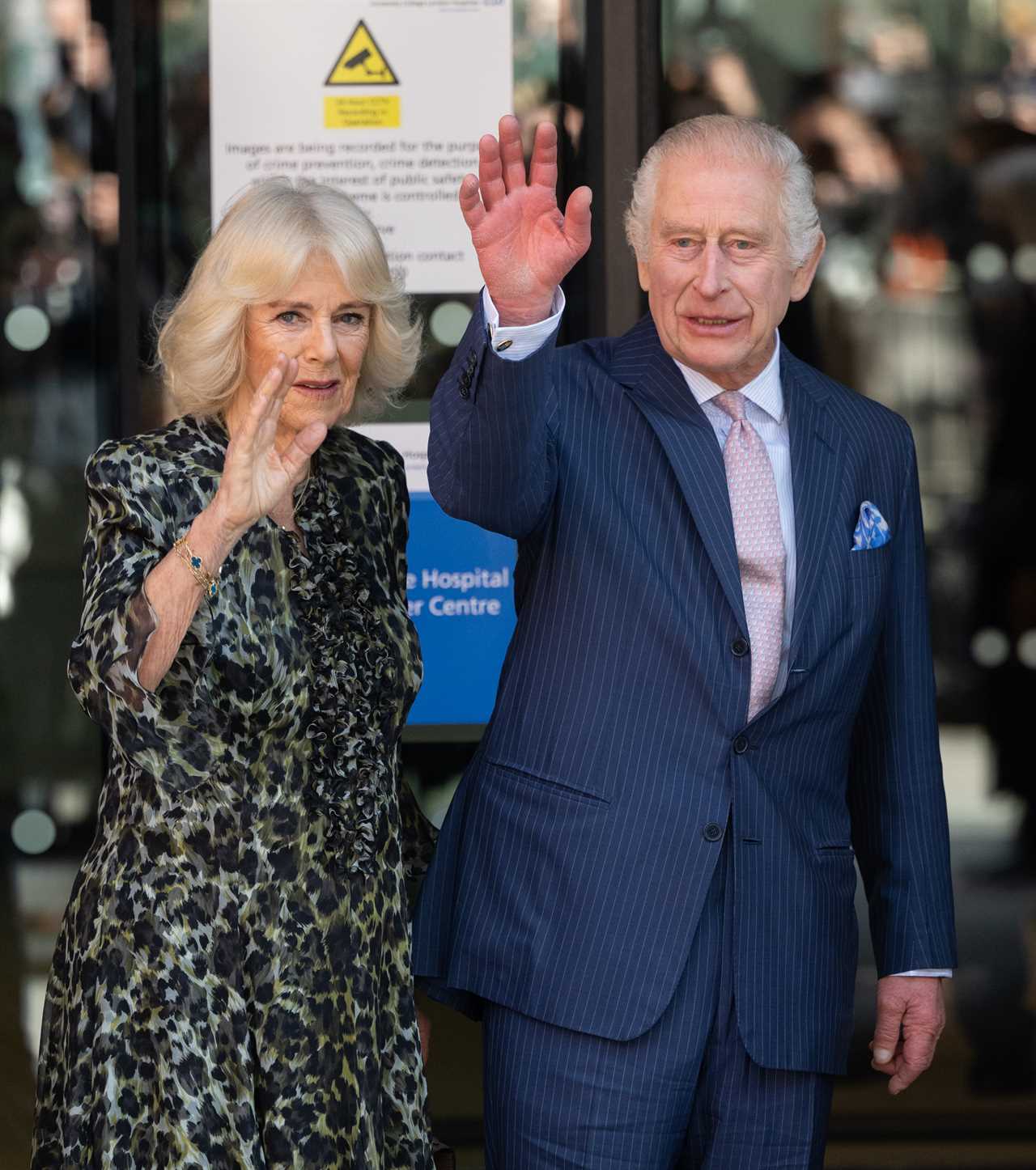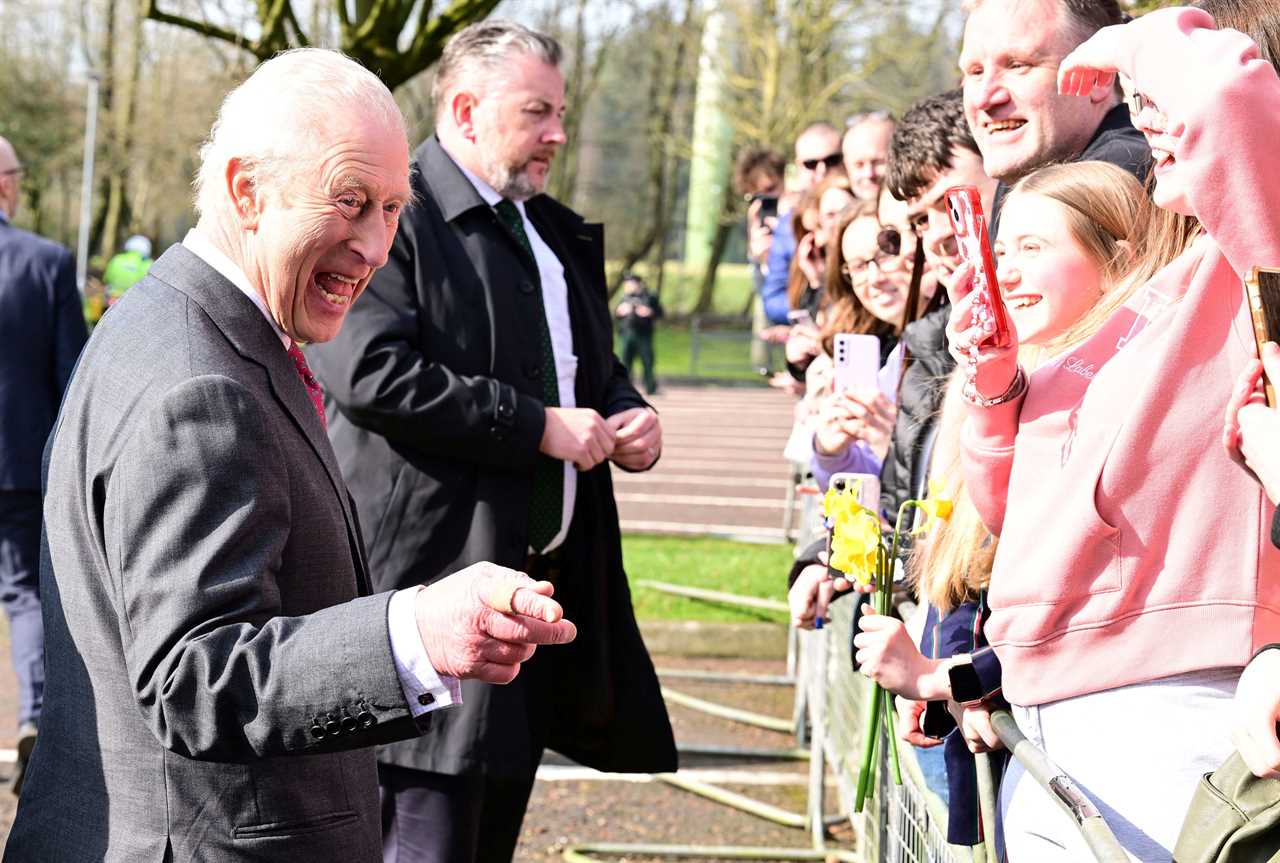
Monarch Maintains Active Role Despite Health Setback
King Charles, 76, remains committed to his royal duties even as he navigates the challenges of cancer treatment. Just days before a recent hospital visit due to side effects from his ongoing therapy, a royal expert observed the King and described him as “firing on all cylinders.”
Unexpected Hospitalization Prompts Engagement Cancellations
Buckingham Palace confirmed that King Charles experienced temporary side effects from his cancer treatment, leading to his admission to The London Clinic. As a result, the Monarch has withdrawn from several engagements scheduled for Friday. Visitors to Clarence House report that the King returned home Thursday afternoon and continues to work diligently from his study.
Dedicated Monarch Faces Health Challenges Head-On
Diagnosed with cancer last year, King Charles began his treatment in January, beginning with a procedure for an enlarged prostate. Although the specific type of cancer has not been disclosed, reports suggest that his condition has been managed effectively over the past 14 months. Despite the demanding treatment regimen, the King has remained active, engaging in high-profile meetings and international visits.
Royal Insight: A Balancing Act of Duty and Health
Hugo Vickers, a royal biographer, shared observations about the King’s recent health visit. He noted that while Charles appears older, his alertness and vitality remain intact. “He’s incredibly hardworking,” Vickers said, highlighting the Monarch’s dedication to his role despite the physical toll. Vickers speculated that the hospital visit might be a result of the King pushing himself too hard.

Impact on Royal Calendar and Public Perception
The King’s absence from planned events has sparked concern and speculation. Buckingham Palace issued a statement expressing regret over the cancellations and assured the public that the King is in good spirits. Future engagements, including a State Visit to Italy in April, are still expected to proceed, contingent on medical advice and recovery progress.
Support and Well-Wishes from the Nation
Public and political figures have expressed their support for King Charles during this period. Sir Keir Starmer, Leader of the Labour Party, conveyed the Prime Minister’s well wishes to the Monarch. The King’s dedication to his duties, even while undergoing treatment, has been widely praised, reflecting his longstanding commitment to public service.
Ongoing Commitment to Cancer Research and Advocacy
Throughout his treatment, King Charles has remained a vocal advocate for cancer research. During a visit to Ulster University in Belfast, he encouraged patients to persevere, echoing sentiments of resilience. His involvement in research initiatives underscores the Monarch’s dedication to advancing medical science and supporting those affected by cancer.
A Year of Resilience and Dedication
Since his diagnosis, King Charles has balanced his health challenges with a demanding schedule of royal duties. From public appearances to international tours, he has maintained a visible presence, demonstrating unwavering commitment. As his treatment continues, the King’s ability to remain active serves as an inspiration to many navigating their own health battles.

Looking Ahead: Recovery and Continued Service
With ongoing treatment and careful monitoring, King Charles is focused on his recovery while preparing to resume his royal responsibilities. The royal household remains optimistic about his health trajectory, planning to adapt his schedule as needed to ensure his well-being. Support from the public and the royal family alike bolsters the Monarch’s resolve to continue his reign with strength and grace.
Frequently Asked Questions
What are some controversies surrounding royalty?
Controversies surrounding royalty can include issues of privilege, the relevance of monarchy in modern society, and scandals involving royal family members. These situations often spark public debate and media scrutiny.
What are the financial aspects of royalty?
The financial aspects of royalty can include income from state funds, personal investments, and inherited wealth. Some royal families also own extensive properties and assets that contribute to their financial status.
How do royal families maintain their relevance?
Royal families maintain their relevance through public engagement and adaptation to contemporary issues. Many royals focus on charitable work, participate in social causes, and utilize media platforms to connect with the public.
Are royal families involved in politics?
The level of political involvement varies by country. In constitutional monarchies, royals may have ceremonial roles without political power, while in absolute monarchies, they may wield significant influence over governance.
What are the roles of royalty in modern society?
In modern society, royal families often serve as symbols of national identity and continuity. They may engage in charitable activities, represent their countries at diplomatic events, and participate in cultural ceremonies, although their political power is often limited.
How do different cultures view royalty?
Different cultures have varied views on royalty, often shaped by history, religion, and societal norms. In some cultures, royalty is revered and seen as divine, while in others, it may be viewed with skepticism or as outdated.
Statistics
- The average age of reigning monarchs worldwide is approximately 63 years old, reflecting both longevity and the hereditary nature of royal succession.
- Royal weddings often attract massive global audiences, with the marriage of Prince Harry and Meghan Markle in 2018 drawing an estimated 29 million viewers in the United States alone.
- Royal families often have extensive wealth, with estimates suggesting that the House of Windsor is worth over £500 million.
- Public engagements and charitable work by royal family members have been shown to improve public perceptions of the monarchy, as seen in various surveys across Europe.
- Approximately 43 monarchies currently exist around the world, with varying degrees of power and influence.
- In Sweden, the monarchy has been a constitutional institution since 1809, with King Carl XVI Gustaf serving since 1973.
- Some modern monarchs, such as Norway's King Harald V, have chosen to live modestly, with their annual income being largely funded by the state.
- About 90% of monarchies today are constitutional, where the monarch's powers are limited by law or a constitution.
External Links
How To
How To Analyze the Impact of Royal Families on National Identity
To analyze the impact of royal families on national identity, begin by studying historical contexts and examining how monarchies have shaped cultural narratives. Investigate how royal symbols and traditions influence national pride and unity. Conduct surveys or review existing studies that measure public sentiment toward monarchy and its role in contemporary society. Consider the portrayal of royal families in media and literature, as these representations often reflect and reinforce national identity. Engage with scholarly articles and discussions on the topic to gain a comprehensive understanding of the relationship between royalty and national identity.
 PoliticsRoyaltySoap OperaGamingMoneyPrivacy PolicyTerms And Conditions
PoliticsRoyaltySoap OperaGamingMoneyPrivacy PolicyTerms And Conditions
